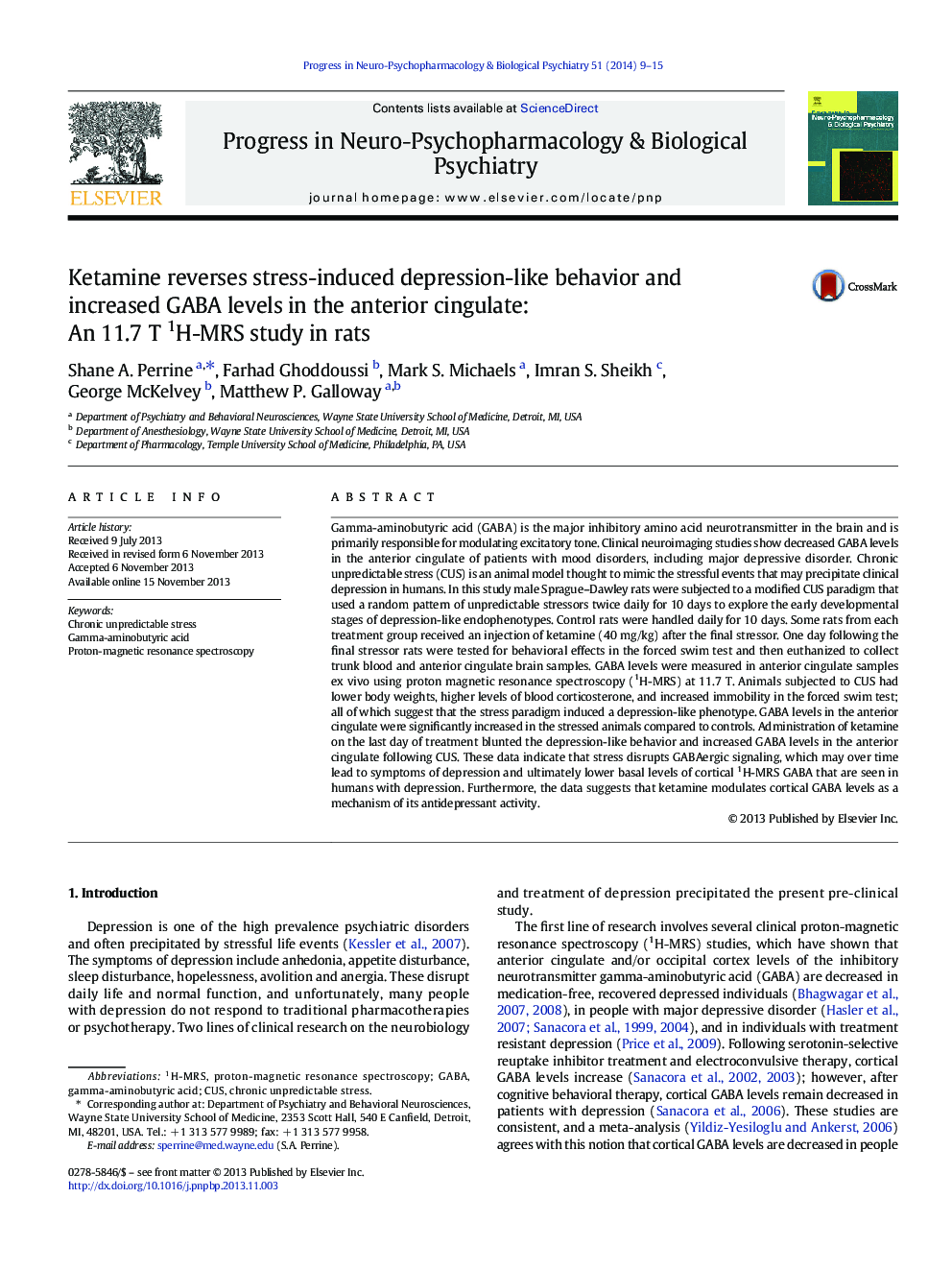| کد مقاله | کد نشریه | سال انتشار | مقاله انگلیسی | نسخه تمام متن |
|---|---|---|---|---|
| 2564833 | 1561043 | 2014 | 7 صفحه PDF | دانلود رایگان |

• Rats were subjected to a modified chronic unpredictable stress (CUS) paradigm for 10 days
• CUS increased immobility in the forced swim test, an effect blocked by ketamine.
• CUS increased anterior cingulate GABA levels, an effect blocked by ketamine.
Gamma-aminobutyric acid (GABA) is the major inhibitory amino acid neurotransmitter in the brain and is primarily responsible for modulating excitatory tone. Clinical neuroimaging studies show decreased GABA levels in the anterior cingulate of patients with mood disorders, including major depressive disorder. Chronic unpredictable stress (CUS) is an animal model thought to mimic the stressful events that may precipitate clinical depression in humans. In this study male Sprague–Dawley rats were subjected to a modified CUS paradigm that used a random pattern of unpredictable stressors twice daily for 10 days to explore the early developmental stages of depression-like endophenotypes. Control rats were handled daily for 10 days. Some rats from each treatment group received an injection of ketamine (40 mg/kg) after the final stressor. One day following the final stressor rats were tested for behavioral effects in the forced swim test and then euthanized to collect trunk blood and anterior cingulate brain samples. GABA levels were measured in anterior cingulate samples ex vivo using proton magnetic resonance spectroscopy (1H-MRS) at 11.7 T. Animals subjected to CUS had lower body weights, higher levels of blood corticosterone, and increased immobility in the forced swim test; all of which suggest that the stress paradigm induced a depression-like phenotype. GABA levels in the anterior cingulate were significantly increased in the stressed animals compared to controls. Administration of ketamine on the last day of treatment blunted the depression-like behavior and increased GABA levels in the anterior cingulate following CUS. These data indicate that stress disrupts GABAergic signaling, which may over time lead to symptoms of depression and ultimately lower basal levels of cortical 1H-MRS GABA that are seen in humans with depression. Furthermore, the data suggests that ketamine modulates cortical GABA levels as a mechanism of its antidepressant activity.
Journal: Progress in Neuro-Psychopharmacology and Biological Psychiatry - Volume 51, 3 June 2014, Pages 9–15